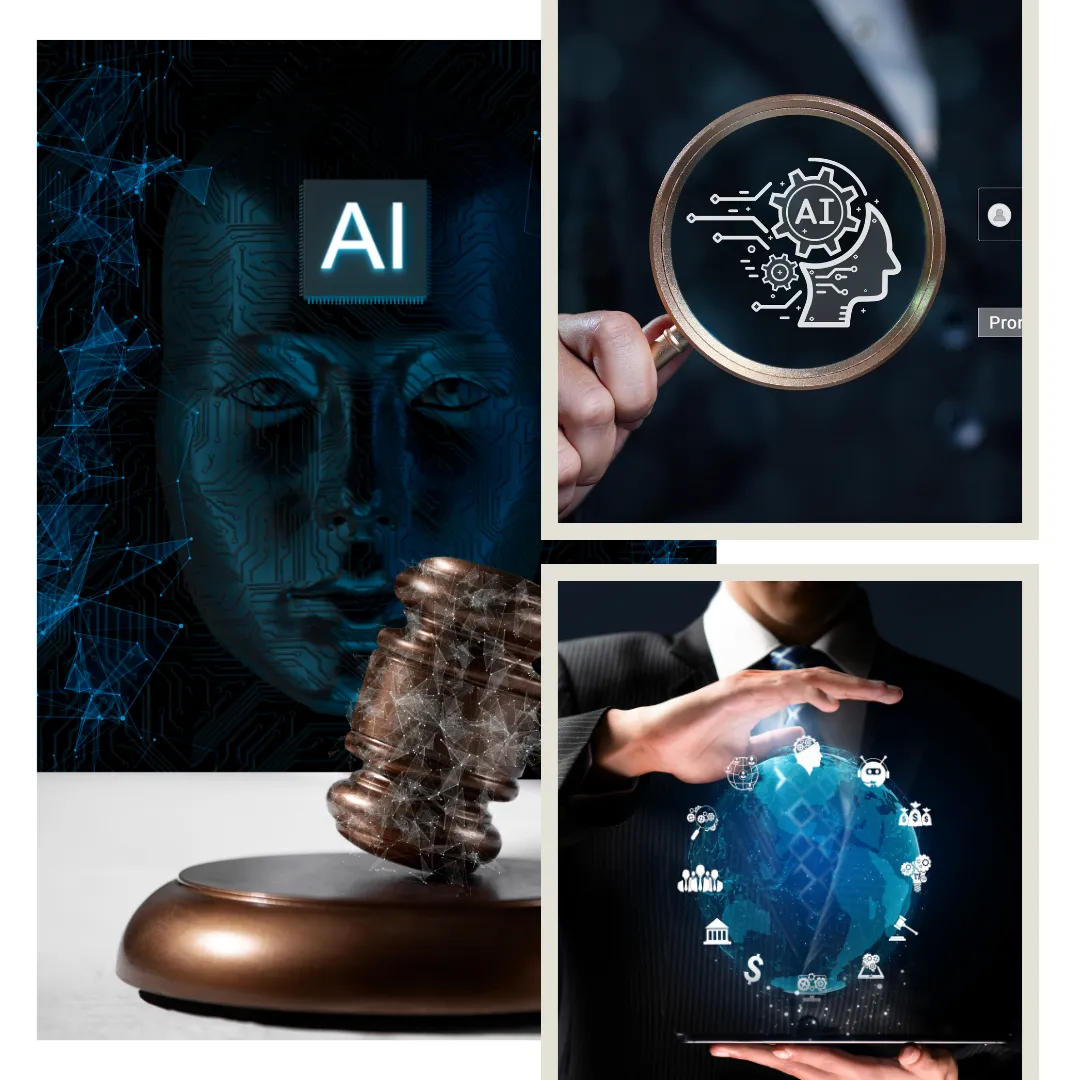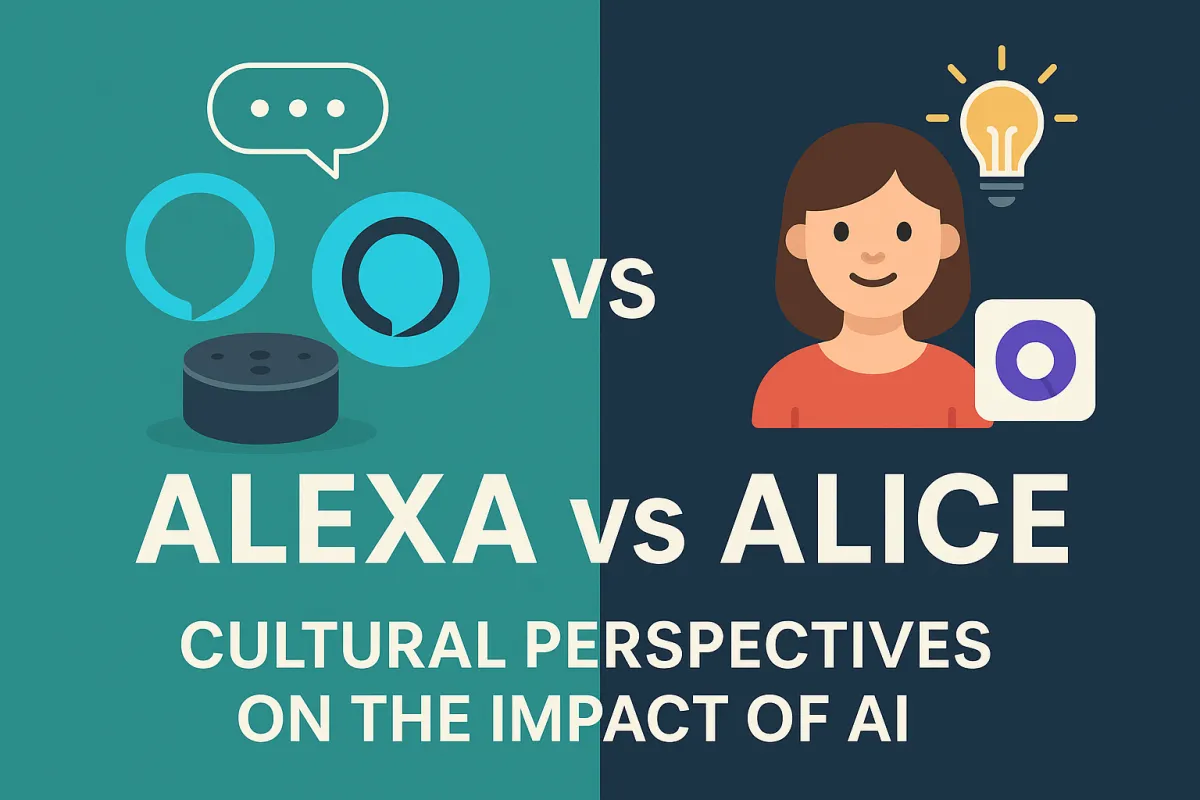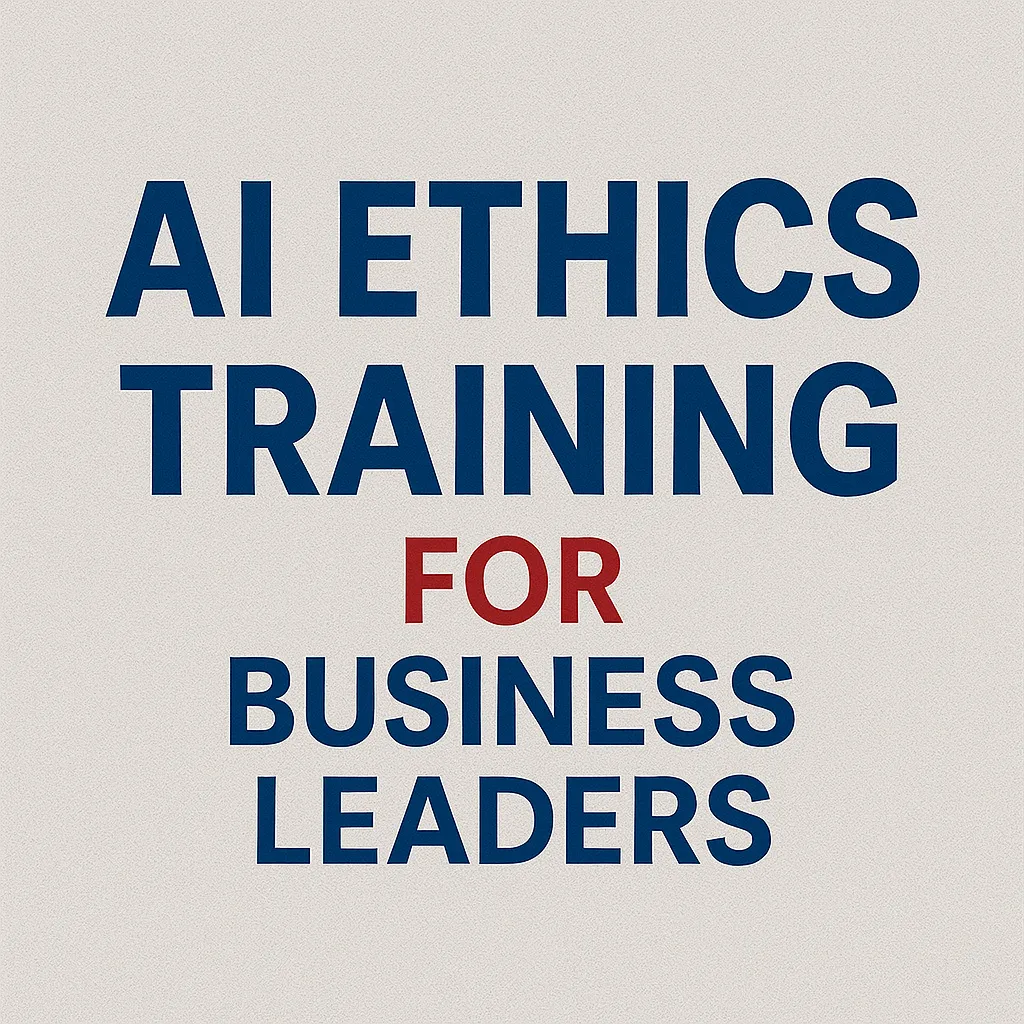Shaping the Future of Responsible AI
AI governance, ethics, and compliance solutions for businesses, governments, and innovators.
AI is powerful—but without governance, it’s risky

AI is powerful
but without governance, it’s risky
As AI integrates into decision-making, businesses and governments face increasing regulatory scrutiny. Ethical AI is no longer optional it’s essential for compliance, trust, and innovation.
☞ AI Regulations Are Here – Stay compliant with global AI laws (EU AI Act, US AI Bill of Rights).
☞ Bias & Transparency Issues – Ensure fair, responsible, and accountable AI development.
☞ Future-Proof Your AI – Build AI systems that are ethical, compliant, and scalable.
WHAT WE OFFER
Comprehensive AI Governance Solutions

AI Ethics & Governance Consulting
Provide clients with comprehensive career assessments to identify their strengths, interests, and goals. Offer personalized career planning sessions where you help clients define their career path, set achievable goals, and develop action plans to reach them.

AI Risk Assessment & Bias Audits
Assist clients in crafting professional resumes and optimizing their LinkedIn profiles. Offer services to highlight their skills and achievements, making them stand out to potential employers. Provide resume templates or samples as resources.


Regulatory Compliance & AI Law Advisory
Conduct mock interview sessions to help clients improve their interviewing skills. Offer feedback on their responses, body language, and overall interview performance. Share tips and strategies for handling different types of interviews, including behavioral and technical interviews.

AI Governance Strategy Development
Develop a tailored job search strategy for each client, including guidance on networking, utilizing job search platforms, and targeting specific industries or companies. Provide resources and templates for cover letters, thank-you notes, and follow-up emails.


Government & Public Policy Advisory
Conduct mock interview sessions to help clients improve their interviewing skills. Offer feedback on their responses, body language, and overall interview performance. Share tips and strategies for handling different types of interviews, including behavioral and technical interviews.
Facing Legal Questions?
Let’s Find Clear Answers Together
Whether you're facing a legal challenge or planning ahead, our experts are here to help. Get personalized advice tailored to your needs no pressure, just clarity.
Book a Free Consultation Today!
Let’s turn your questions into confident decisions.
Stay Ahead of AI Regulation Changes
Live Regulation Updates
EU AI Act Updates
New compliance deadlines for AI developers.
March 2025
US AI Bill of Rights
White House releases new AI accountability guidelines.
Feb 2025
China’s AI Regulation
Stricter guidelines for deep fake technology.
Jan 2025
Become a Certified AI Ethics Professional
Develop expertise in AI governance, compliance, and responsible AI practices. Our certification programs are designed for professionals, compliance officers, and businesses looking to lead in ethical AI.
AI Ethics in Action Lessons from Real-World Cases

Alexa-vs-Alice-cultural-impact
Alexa vs. Alice: How Culture Shapes AI Adoption Across the Globe
Understanding AI Through a Cultural Lens
In today's interconnected world, artificial intelligence (AI) isn’t just reshaping the way we live and work—it’s also revealing the diverse cultural values that shape how we engage with emerging technologies. Nowhere is this more evident than in the comparison between two leading AI voice assistants: Amazon's Alexa and Russia’s Alice (by Yandex). These digital companions don’t just answer questions; they interact in ways deeply informed by the cultures that created them.
This blog post dives into the cultural narratives surrounding AI, drawing insights from historical shifts, emotional design, ethical debates, and global perceptions that influence AI’s acceptance and adaptation.
A Brief Historical Backdrop
From ancient tools to the digital revolution, technological evolution has always intertwined with societal transformation. Voice-based technologies, including radios and now AI assistants, have long influenced public discourse. For example, radio broadcasts played major roles in political mobilization during the 20th century—from Hitler’s rallies to Roosevelt’s fireside chats. Similarly, modern AI voice assistants continue this legacy by shaping how people relate to technology in everyday life.
But history also reminds us: innovation must be thoughtful. Without ethical reflection, new technologies risk reinforcing old inequalities.
Why Culture Matters in AI Design
Every culture holds unique beliefs about autonomy, privacy, hierarchy, and trust. These cultural expectations influence how people interact with technology.
In Western societies, values such as individualism and personal autonomy dominate. AI systems like Alexa are designed to enhance user control and personalization.
In contrast, East Asian cultures often value harmony and collective well-being. In these contexts, AI like Alice may be embraced as a tool for group benefit or familial care rather than individual empowerment.
This divergence isn’t merely academic—it affects interface design, voice tone, privacy defaults, and user engagement.
Popular Culture: Influencer of Fear or Friendliness?
Media depictions of AI play a powerful role in shaping public attitudes. In the West, AI is often framed as a double-edged sword—both a helper and a threat. Films like Her or Ex Machina provoke existential questions about consciousness and control.
Meanwhile, in countries like Japan, AI is often portrayed as benign or even adorable—think of robots like Pepper or the influence of anime. These portrayals foster comfort rather than caution, influencing user openness to AI integration in daily life.
Regional Insights: One Size Doesn’t Fit All
Cultural perception of AI varies by region:
North America & Europe: Concerned with privacy, data protection, and algorithmic fairness.
Asia: Focuses more on economic development, convenience, and technological optimism.
Africa and Latin America: Highlight access inequality and the social impact of AI on employment.
Developers aiming for global reach must account for these nuances—or risk building products that alienate instead of empower.
Bias in AI: A Cultural and Ethical Crisis
High-profile examples—like the COMPAS tool misclassifying Black defendants or Amazon’s biased hiring algorithm—show that AI systems can reinforce systemic bias. These failures highlight the need for diverse development teams, culturally aware training datasets, and ongoing auditing of AI behavior.
Without such measures, AI risks perpetuating the very inequalities it was meant to solve.
Designing AI That Feels: Emotional Intelligence and Culture
Emotional design—how AI interfaces connect with users on a human level—is becoming central to AI development. AI systems are evolving from cold tools into emotionally resonant companions. But emotional responses are also culturally shaped.
For example, users in collectivist cultures may prefer AI with polite, reserved tones, while those in individualistic cultures might value humor or informal interaction. This adds another layer of complexity to creating AI that resonates globally.
Toward an Inclusive AI Future
The future of AI must be:
Culturally adaptive – able to understand local norms and values.
Ethically sound – designed with fairness and inclusivity at its core.
Emotionally intelligent – responding to users with empathy and awareness.
Globally representative – developed with diverse voices at the table.
Conclusion: Bridging Cultures Through Code
AI is not just a technological phenomenon—it’s a cultural mirror. By comparing Alexa and Alice, we see how cultural values deeply shape our relationship with digital assistants. This comparison serves as a reminder: technology is not neutral. Its development must be guided by inclusive ethics, interdisciplinary collaboration, and above all, cultural sensitivity.
As we build the future, let’s ensure AI empowers everyone—not just a few.
Stay Ahead with NexterLaw
Be the first to know about legal trends, expert tips, and our latest services. We deliver real value – no spam, just smart insights and useful updates. Subscribe to our newsletter and stay informed, protected, and empowered.
We respect your inbox. Unsubscribe anytime.

COMPANY
Quick Links
Copyright 2025. AI Review Marketing Agency. All Rights Reserved.








